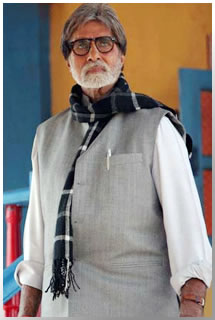| |
|
Aarakshan:
New forms of censorship?
|
|
 |
|
Before
it was released (and before probably anybody from
the authority viewed it to deem its contents controversial),
Aarakshan was banned in Uttar Pradesh, Punjab and
Andhra Pradesh. Although Punjab and Andhra Pradesh
lifted the ban after editing the, what they considered,
provocative scenes, Uttar Pradesh extended the ban
for another two months citing law and order problems
the movie might create. On director Prakash Jha’s
petition challenging the state government’s
decision, the Supreme Court issued notice to the
Central and UP governments seeking response in this
regard.
We are not new to intolerance paving way to crude
censorship, intruding artistic freedom. There is
no dearth of movies that suffered the fate of Aarakshan
in the recent past. Parzania, Fanaa, Jodha Akbar,
Singham and Love Sex Aur Dhoka are recent examples.
The issue with Aarakshan, as we all know by now,
is that it reportedly challenges the reservation
policy. Does it? That is a different story altogether.
But people at the top obviously thought it did and
wasted no time in banning the screening. Not to
mention, few incidents of violence were reported
in places the movie was released. |
|
So is Jha’s Aarakshan so explosive that you have
to ban it from creating public unrest? It’s actually
ludicrous to even think so. Because there is nothing,
even remotely, explosive about Aarakshan. Aarakshan, although
starts off on the note of reservation, swiftly tumbles
down into the depths of commercial cinema and ends like
a potboiler. It dutifully follows the regular framework
of a commercial movie and portrays the life of a protagonist,
who believes strongly in reservation and gets ostracized
for the same from the private college he is a Principal
of. On that count, yes. It does deal with reservation.
But doesn’t it also mean the movie speaks for reservation?
So why should it be banned? Because the movie features
a few dialogues against reservation. So although the movie
is for reservation, just a scene is featured in it that
challenges reservation. Hence it should be banned!
We are a nation filled with prude, self-imposed moral
policemen. We don’t think even once before imposing
anything less than a ban. I am thinking; when was the
last time a movie evoked huge protests because it hurt
sentiments of movie goers? If you do not consider the
asinine protests backed up political parties, the answer
is mostly no. The censor board, thankfully considered
to be coming of age, issued U/A to the movie without rising
too many questions. Besides, the Information and Broadcasting
Minister Ambika Soni voiced her support for showing Aarakshan
without cuts.
Sharmila Tagore, who led the Indian Film Censor Board
from October 2004 till March 2011, in a recent column
states that banning films is a ‘very disturbing
signal to send out to ensure there is no violence.’
She was referring to the ‘extreme step’ of
banning films by state governments fearing there will
be unrest. The strange thing here is that it’s not
enough the Censor Board, considered to be the apex body
to certify films in India, passes a movie. The movie should
also placate the senses of every state in India. Isn’t
it also the part of the Censor Board to look into such
details before granting a movie’s certification?
Will these protests, at the whims and fancies of our politicians
make our producers / directors go back to making banal
movies in the future? Not that we have a dearth of such
movies now. Will it preclude them from trying themes that
are socially relevant?
At one level, all this controversy has provided enormous
publicity for the movie. After all, isn’t any publicity
good publicity? Whether Aarakshan makes good business
or not will be known in a couple of weeks from now. But
it can’t be denied that Aarakshan opened up new
debates on the subject of censorship, by the state as
well as by the uptight political elements that look to
make hay.
And may Prakash Jha succeed in making movies stronger
and more compulsive than Aarakshan.
Respond to 
Behindwoods is not responsible for the views of columnists.
|
| |
|
|








